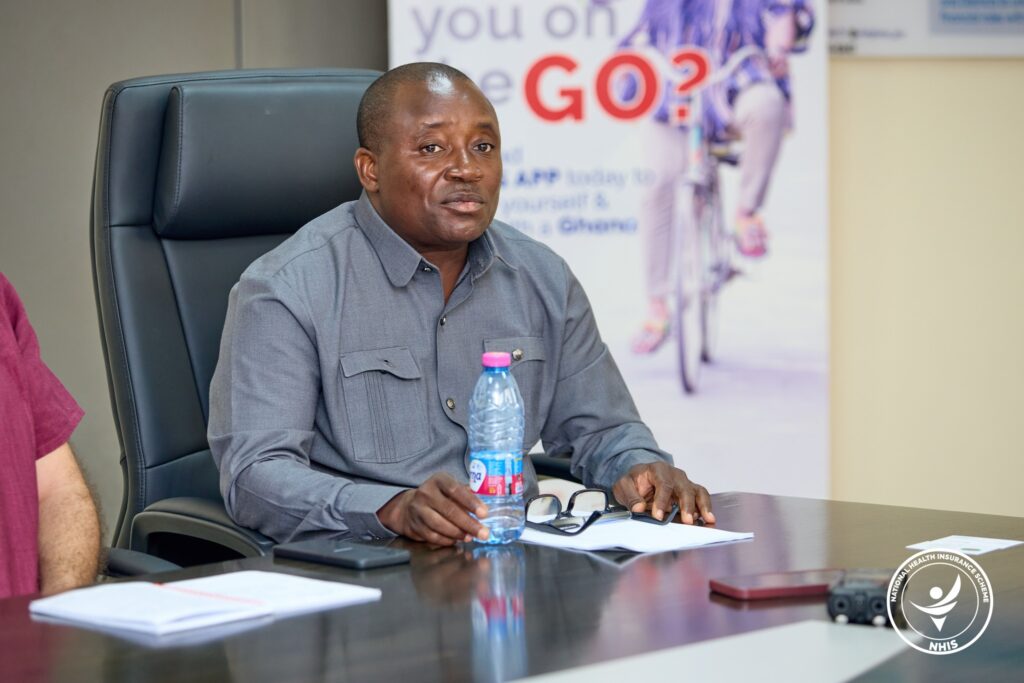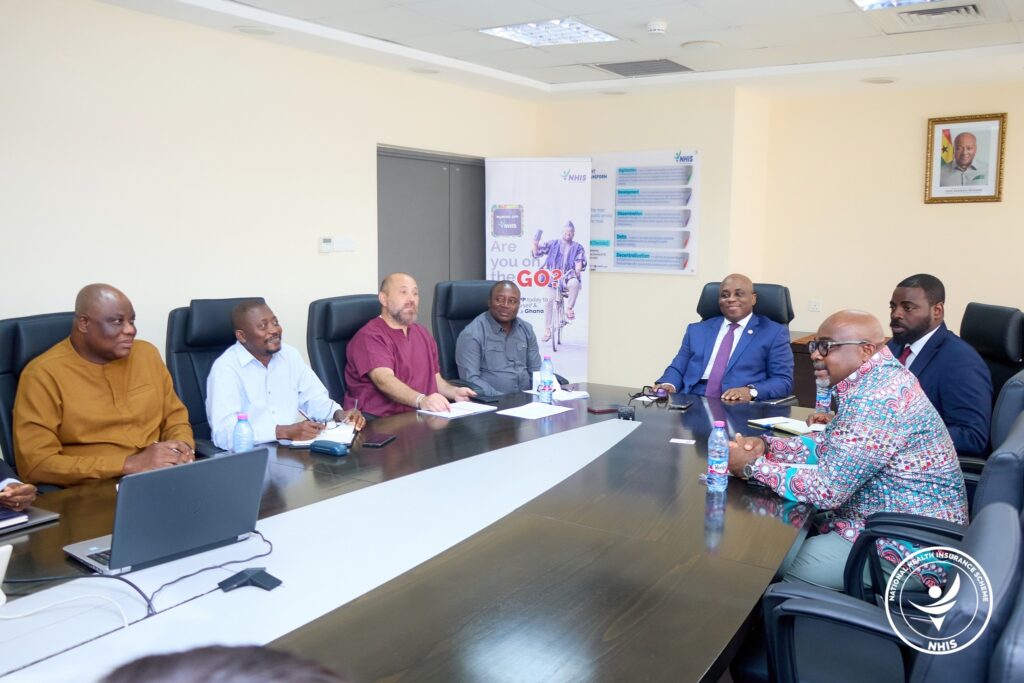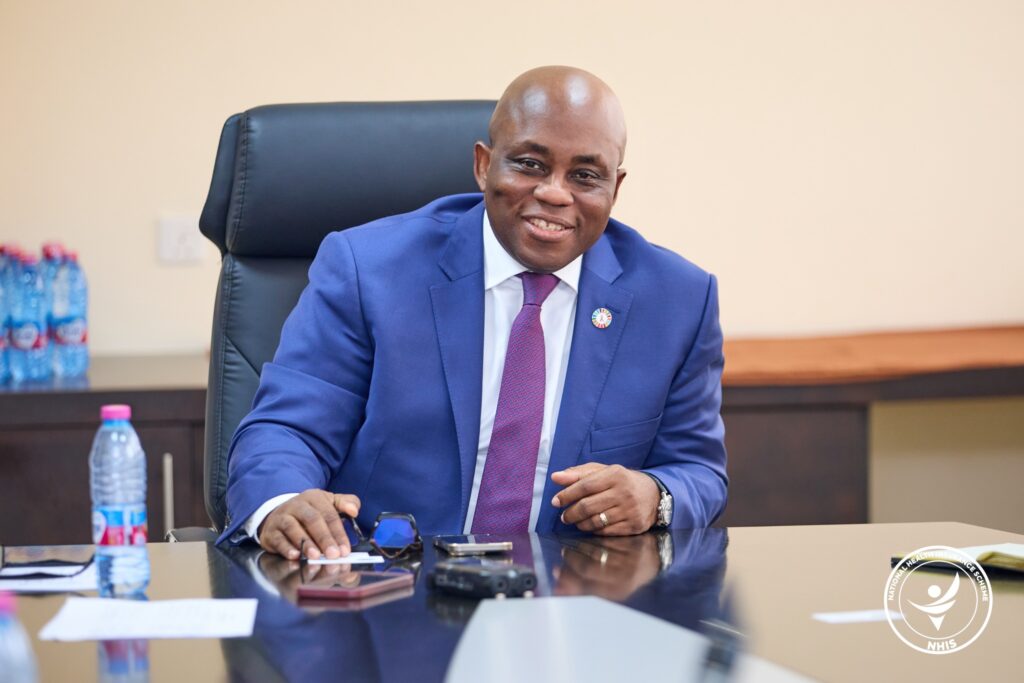The Ghana AIDS Commission (GAC) has made a fervent appeal to the National Health Insurance Authority (NHIA) for urgent collaboration to avert a looming collapse in the country’s HIV/AIDS response as global donor support continues to dwindle.
The call was made during a high-level meeting, where a delegation from the GAC, backed by officials from UNAIDS, met with the executive leadership of the NHIA, led by its Chief Executive Officer, Dr. Victor Asare Bampoe.
The discussions centered on exploring sustainable funding mechanisms, integrating HIV/AIDS care into existing national health frameworks, and leveraging domestic solutions to maintain the progress Ghana has made in managing the epidemic.
Dr. Prosper Akanbong, Director-General of the Ghana AIDS Commission and leader of the delegation, emphasised the urgency of finding internal financial solutions in the face of dwindling external support.

He explained that while Ghana had already initiated a sustainability roadmap over the past 18 months, recent geopolitical developments—particularly shifts in U.S. global health policy—have forced many donor-reliant countries to hasten plans for self-sufficiency.
“Most countries have already begun integrating HIV treatment into their national health systems. Ghana cannot afford to be left behind. We’re here to discuss sustainability. Who better to speak to than Dr. Bampoe, who has long advocated for country readiness in response to declining donor funds?”
Dr. Prosper Akanbong, Director-General of the Ghana AIDS Commission
Dr. Akanbong highlighted three key proposals aimed at ensuring long-term sustainability, including expanding the National Health Insurance Scheme (NHIS) to cover HIV/AIDS care.
Others include integrating non-clinical HIV/AIDS services into the Mahama Cares initiative—formally the Ghana Medical Trust Fund; and boosting local production of HIV-related medical commodities such as antiretrovirals and test kits to reduce dependency on imports.
In advocating for inclusion into the Mahama Cares initiative, which supports Ghanaians with chronic non-communicable diseases like kidney failure and cancer, Dr. Akanbong explained the chronic nature of HIV/AIDS justifies its classification as a long-term condition requiring sustained funding.
“We would want your support in making the justification for this inclusion,” he added.

NHIA’s Assurance
The NHIA’s Chief Executive, Dr. Victor Asare Bampoe, himself a former Deputy Minister of Health and a vocal advocate for health systems sustainability, welcomed the proposals with optimism.
However, he urged stakeholders to act swiftly and pragmatically, given the resource constraints facing both international donors and the Ghanaian government.
“There is no better time for us to have this meeting. The Mahama Cares train is taking off, and HIV/AIDS care fits very well into this framework.”
NHIA’s Chief Executive, Dr. Victor Asare Bampoe
He called for the immediate formation of a joint NHIA-GAC technical team to develop specific, costed proposals for submission to the Minister of Health, stressing the importance of actionable data and realistic budgeting.
Acknowledging the financial challenges ahead, Dr. Bampoe cautioned against expecting high donor replenishments in the near future.
Referring to the levels of support previously received from the Global Fund, Dr Bampe suggests that cost-effective, low-cost approaches will be the most feasible under current economic realities.
“We used to say the preferred model is the Rolls Royce, and the Global Fund is the Toyota. Maybe now we must go for the Tico model”.
NHIA’s Chief Executive, Dr. Victor Asare Bampoe
Also contributing to the discussion, Dr. Senanu Kwesi Djokoto, Deputy Chief Executive for Operations at the NHIA, recognized Ghana’s historical gains in the fight against HIV/AIDS but noted worrying recent trends, including shortages in pediatric HIV medications and a spike in mother-to-child transmission rates.
“In the past few years, we’ve begun seeing symptoms of our inability to fully respond to the pandemic,” Dr. Djokoto said, pointing to structural and supply chain weaknesses that must be addressed if Ghana is to sustain its progress.

He praised the GAC for its foresight and urged continued multisectoral collaboration. Dr. Djokoto revealed that the NHIS is currently onboarding a new health prevention and promotion package, which he believes could eventually encompass many of the preventive and early detection activities championed by the GAC.
This includes screening for non-communicable diseases and potentially HIV.
The meeting concluded with a shared commitment to urgently align efforts to prevent any regression in Ghana’s HIV/AIDS fight. While all parties acknowledged the severe challenges ahead, they were united in the conviction that a pragmatic, locally-driven approach was essential to preserving the health and dignity of Ghanaians living with HIV/AIDS.
As global health funding landscapes shift, Ghana’s ability to integrate and institutionalize responses within national systems may well define its future capacity to manage and ultimately curb the HIV/AIDS epidemic. The call for action is now more urgent than ever.




















